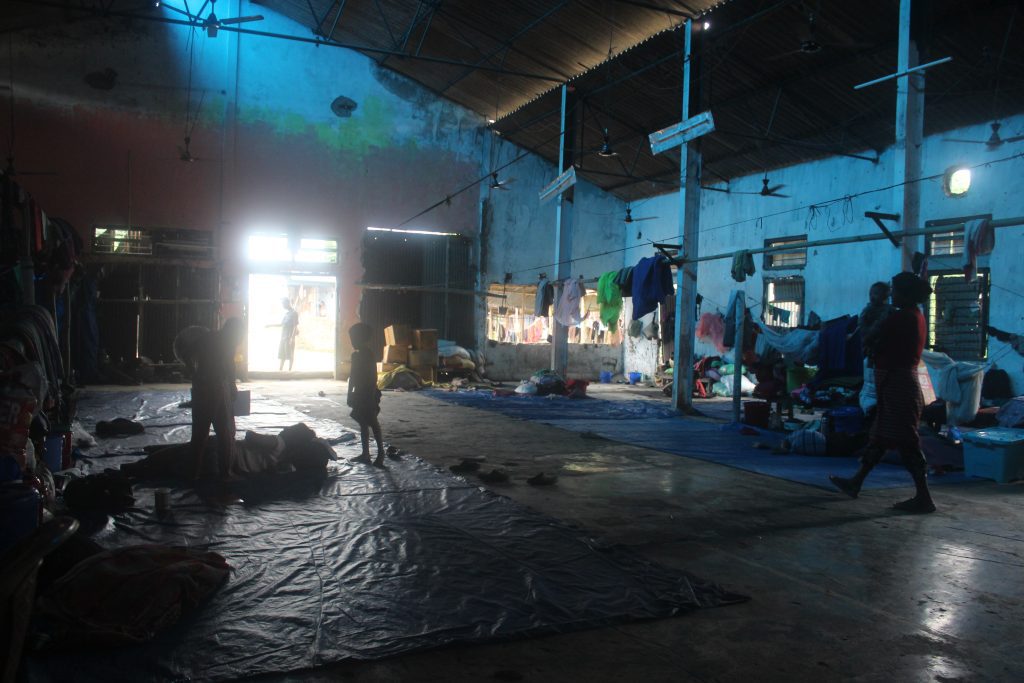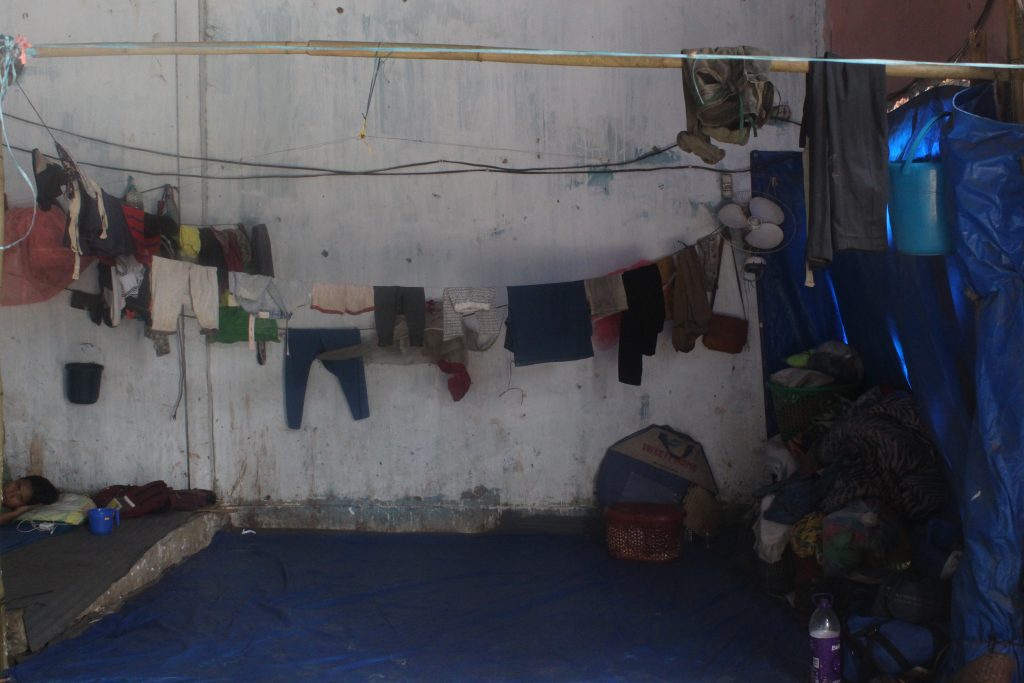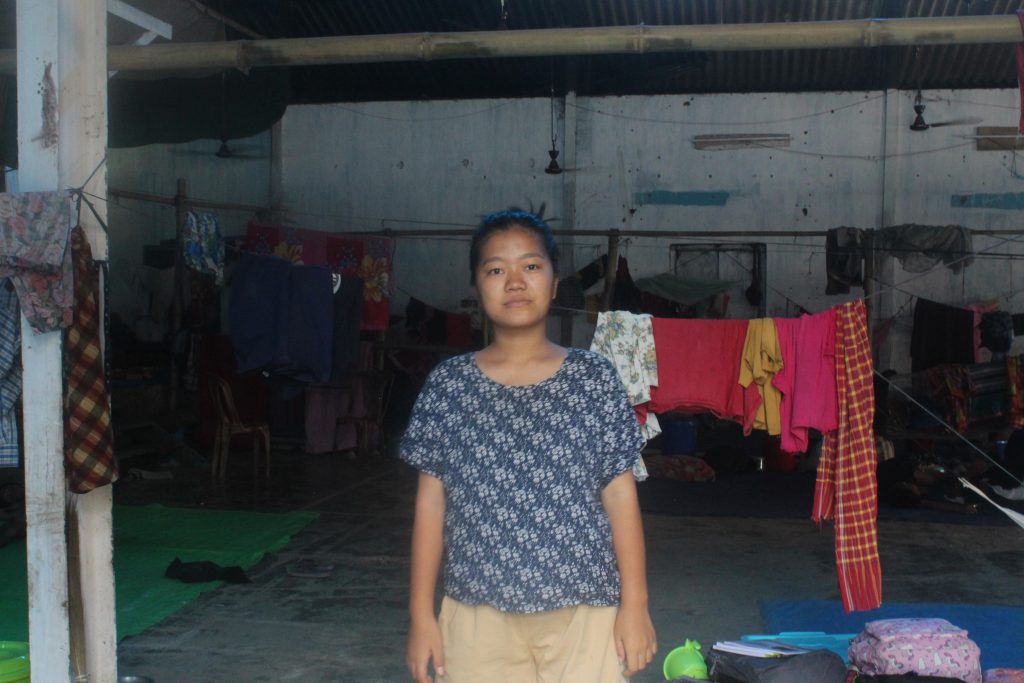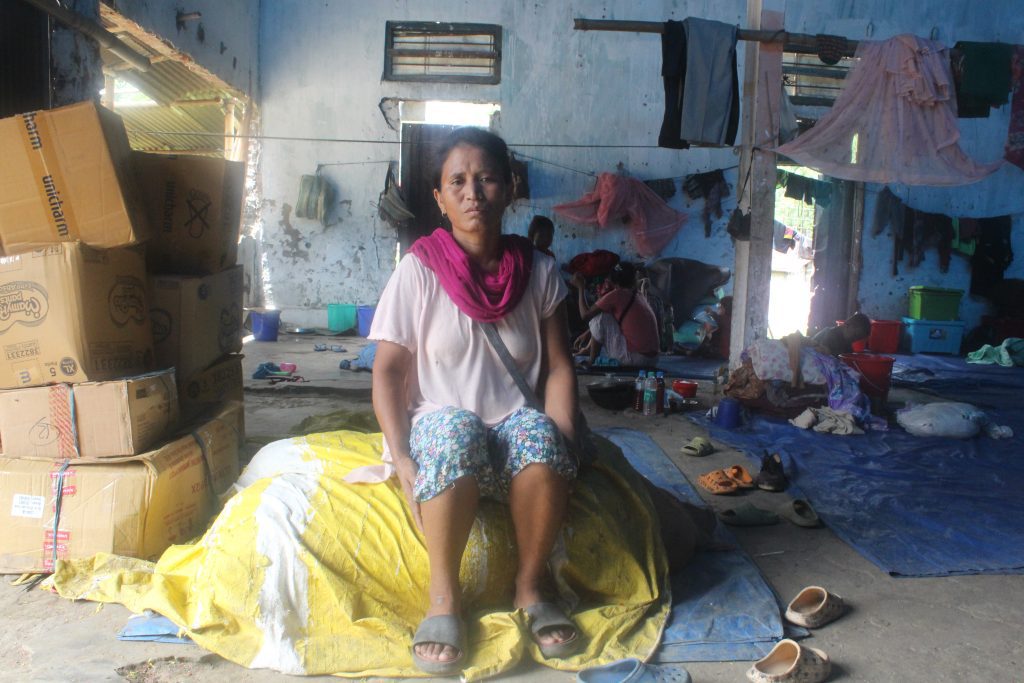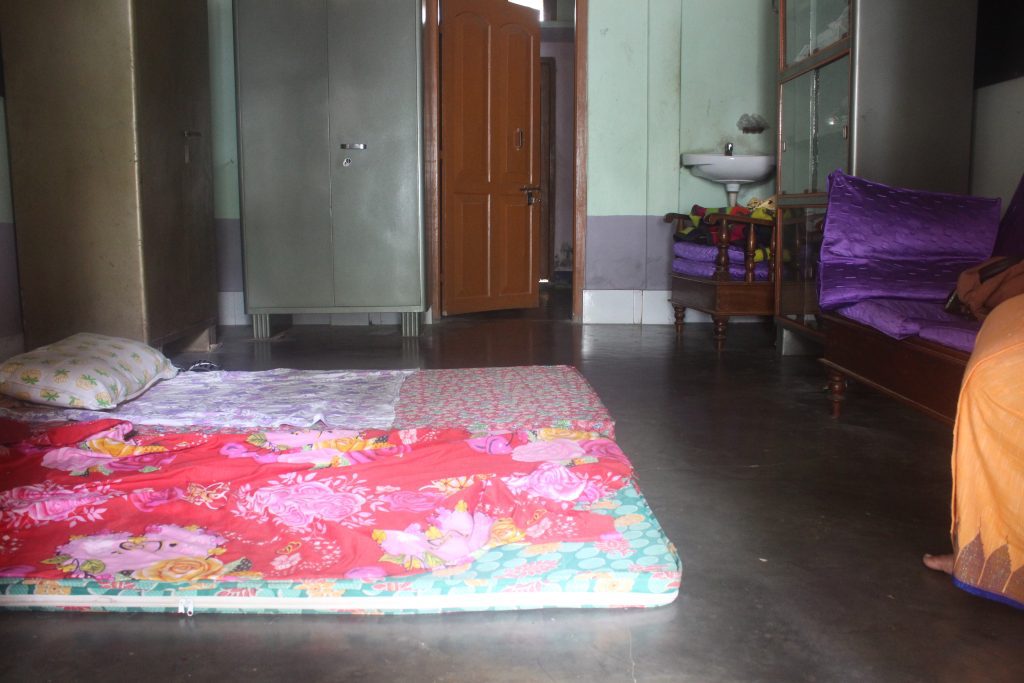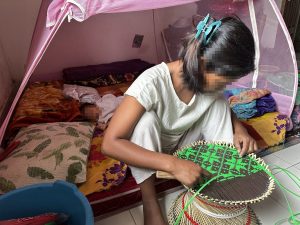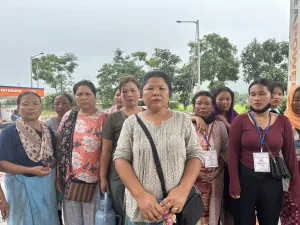[Readmelater]
‘Anything Can Happen’. Why Kuki Women In Assam’s Camps Fear Returning To Manipur
Resources are sparse at this refugee camp in Silchar but women from Manipur who have sheltered here with their families do not want to return home yet
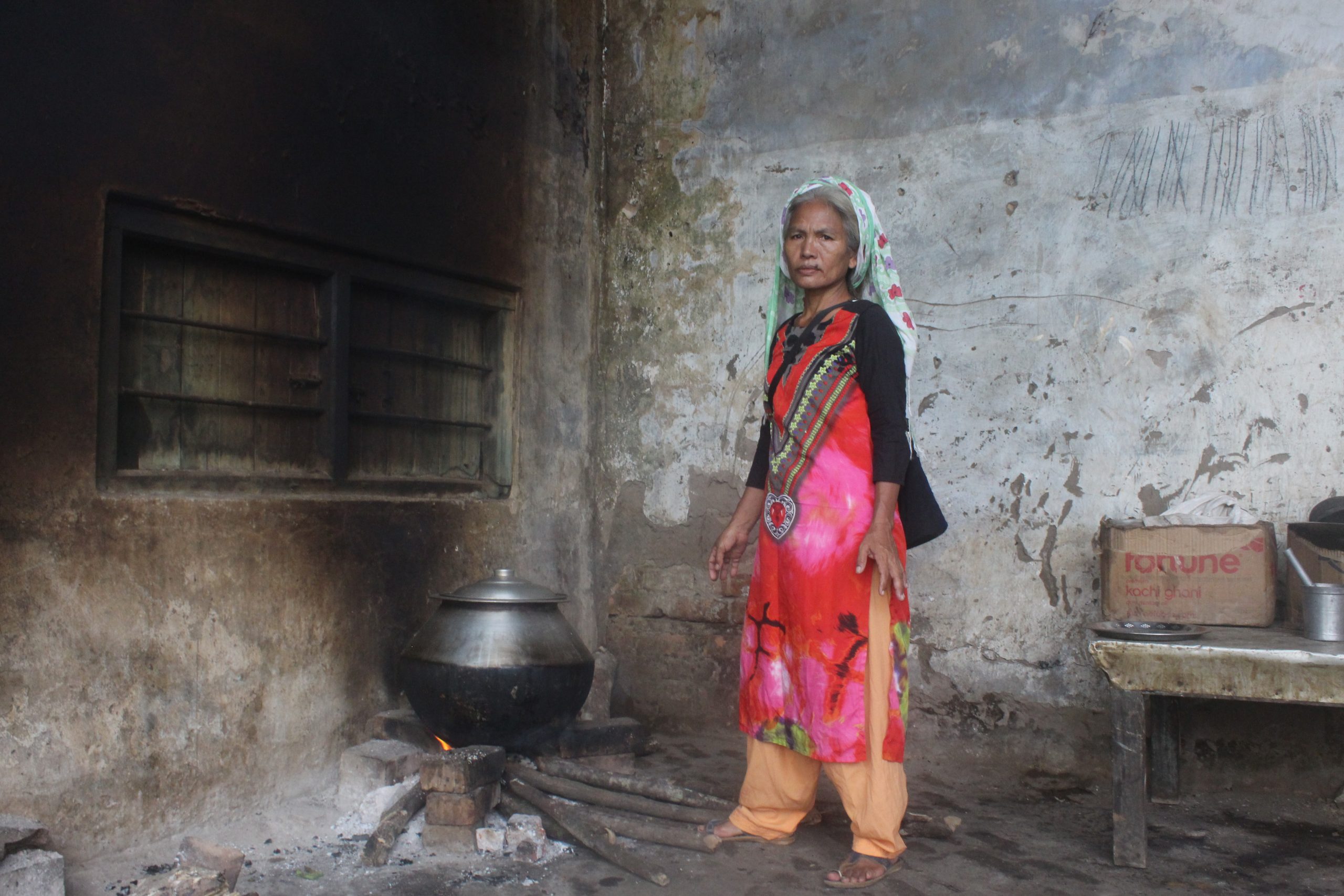
Hoikholing Lhingboi has been living in a relief camp in Hmarkhawlien village in Cachar district of Assam since she escaped ethnic violence in Manipur / Sanskrita Bharadwaj
Support BehanBox
We believe everyone deserves equal access to accurate news. Support from our readers enables us to keep our journalism open and free for everyone, all over the world.
